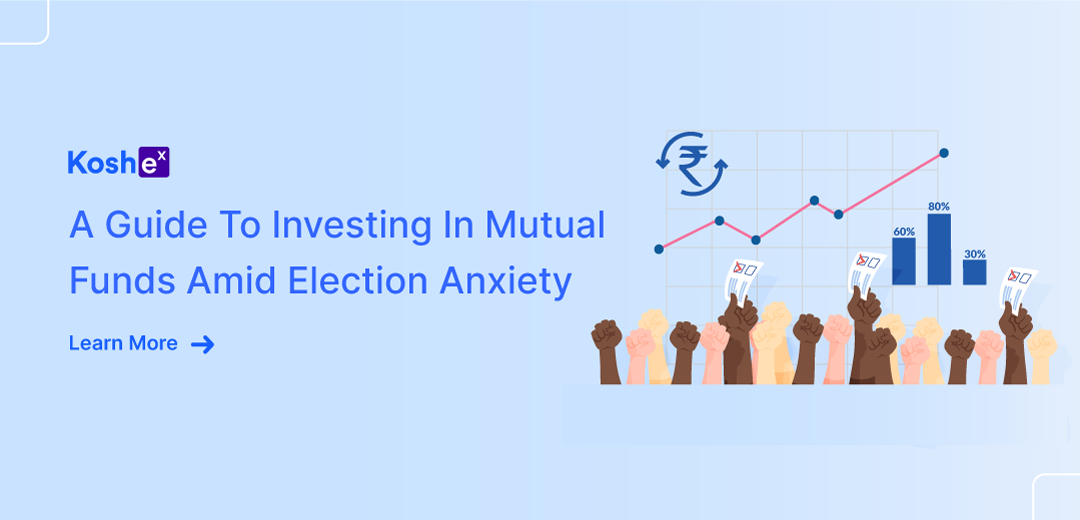The stock market witnessed a blood bath on the day of election results. Anxiety, confusion and frustration – Indian investors experienced a plethora of emotions that day, as the NDA government failed to live up to the expectations of grabbing over 370 seats. If your portfolio has gone in the red, here is how you can handle it.
Election Results & Reaction
As the counting for the 2024 elections began on June 4, it was soon found that Prime Minister Narendra Modi’s Bharatiya Janata Party (BJP) lost its national majority after suffering major losses in key states. In the last two elections in 2014 and 2019, BJP enjoyed a landslide victory.
Unlike both of the previous elections, when the BJP won clear majorities on its own in a house of 543 seats, it ended up with 240 seats this time around. The halfway mark is 272 seats. On the other hand, the opposition INDIA alliance, led by the Congress party, won 223, which is significantly higher than exit polls had predicted.
The Indian equity benchmark indices, BSE Sensex and NSE Nifty, declined over 6% on June 4 after election results surprised investors. This is the stock market’s biggest drop since 2020.
The reason the market declined drastically was because how the election results were way off from what the exit polls had predicted. On Saturday, most exit polls predicted that the BJP-led NDA may win over 350 of the 543 seats in the Lok Sabha. Three exit polls predicted that the NDA may create history and cross the 400-seat milestone in the Lok Sabha polls-time. However, the exit polls didn’t match the actual results, resulting in a bloodbath in the market.
Buy or Sell
As uncertainty around NDA forming the government rose, investors began panicking and started offloading their investments. This resulted in the Sensex falling over 4,000 points. When the market was falling, many rushed to withdraw their investments, while some went to buy the dip i.e. taking advantage of the market fall.
So, what should you do? Should you be changing your portfolio based on election results and election anxiety? Here’s what we believe:
Long-Term Approach:
Whenever you invest in any investment instrument, your decision should always be based on your financial goals, investment horizon, and risk appetite. It should not be based on passing events like election results. Your portfolio should have a good balance between risk and reward. If you want to take risks and stay invested for the long term, you should consider adding more equities to your portfolio. However, if you want to take low risks and earn stable returns, you should consider adding debt instruments to your portfolio.
Here’s what an expert told Moneycontrol on building a diversified portfolio: “…The earnings outlook for domestic cyclical and capital goods remains good, though it has to be seen in the context of the current ask rate factored in the valuations. That said, if investing for the long term, a large part of your portfolio should be geared towards equities or equity-oriented mutual funds. Investors should also put a portion of their portfolio in debt funds and gold ETFs (exchange-traded funds) so that your capital can be preserved in case of volatility.”
Stick To Your SIPs:
If you are investing in mutual funds through Systematic Investment Plans (SIPs), you don’t have to be distracted by short-term events like election results, as investments will always get averaged over a period. SIPs also take care of timing the market. In short, this is not the right time to pause your SIPs or withdraw your investments. SIPs are a great investment mode that can help average out the losses over a long period. So, stick to them and don’t overthink whether you should meddle with your SIP investments.
Where Should You Be Investing?
Experts told Moneycontrol that investors should consider choosing sectors that are bound to grow. Sectors such as agriculture, textiles, automobiles, information technology (IT), and financial services are integral to India’s economic landscape. These sectors provide major potential for investment, driven by factors like domestic demand, global competitiveness, and technological advancements.
Experts also ask investors to be cautious in some areas. For example, mid-cap and small-cap valuations are very expensive, so maintain caution in these segments. They added that opportunity lies in large-caps, which are reasonably priced versus mid-caps and small-caps.
In Conclusion…
The NDA-led government’s measures have been favourable to the market so far, with the market surging multifolds in the past few years. So, we understand the agony experienced by investors on uncertainty over the BJP party forming the next government.
However, when it comes to investing in mutual funds, it is better to build a diversified portfolio that will withstand short-term volatility. It is important to not panic and follow the masses without any rational thinking. So, always have a long-term perspective when it comes to investing in the stock market.









Leave a Comment